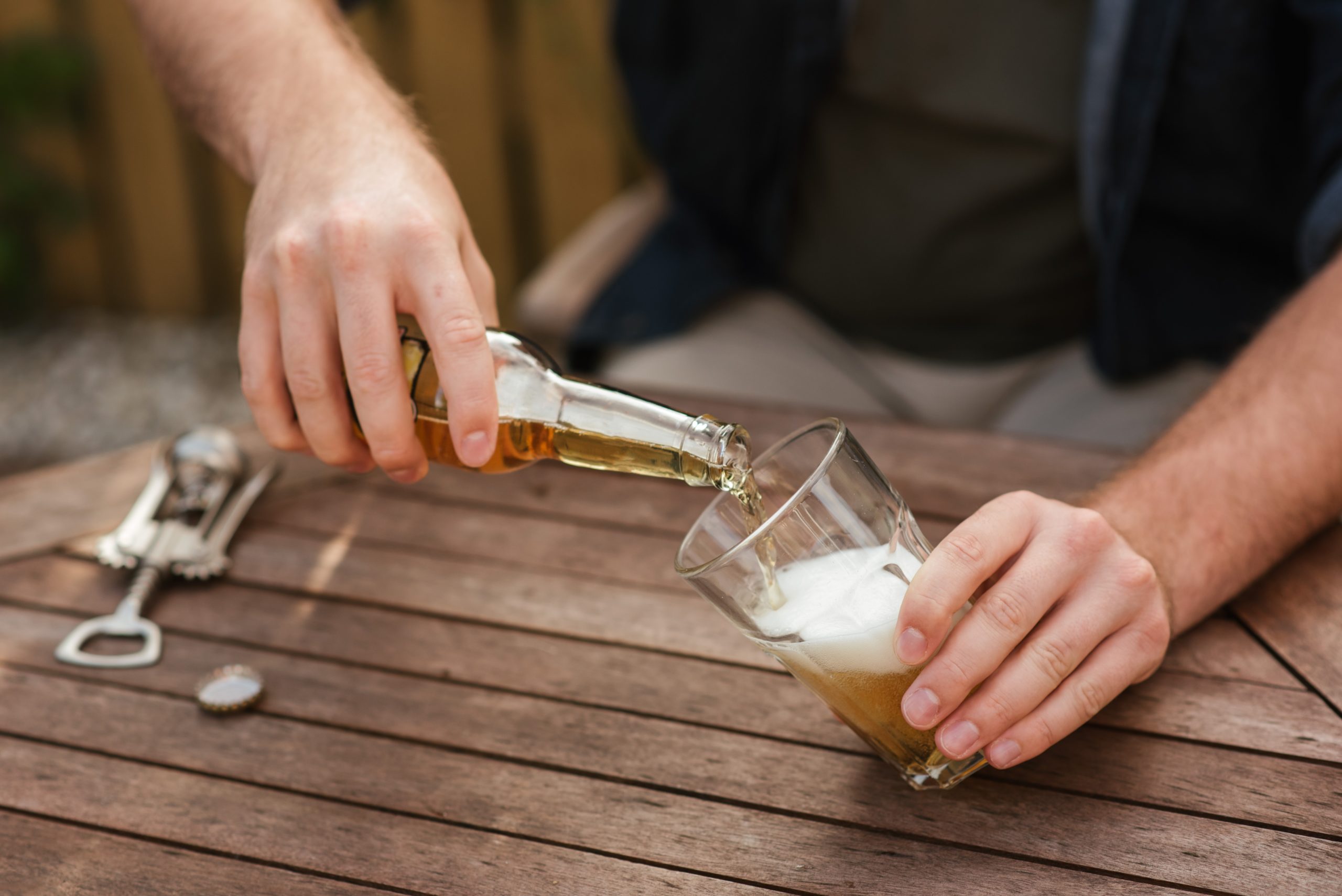
Substance use disorders and mental health conditions are often closely related. There are many questions about how alcohol affects depression. Depression specifically can be a common co-occurring with substance abuse problems, such as alcoholism. These disorders can often aggravate each other to make side effects more harmful, or one can directly lead to the other. During treatment, it is crucial to seek help for both disorders to promote better health and sobriety.
Alcohol is considered to be a depressant drug. Specifically, alcohol is a depressant for the central nervous system, as that is the area of the body that it primarily affects. Depressant drugs are substances that cause an area of the body to slow down or decrease in function. Because alcohol slows down bodily function, that is why people may experience symptoms such as slurred speech, vision impairment, and impair coordination.
Alcohol is a unique depressant because, in the early stages, it can cause stimulating effects, which is the opposite of depressant effects. How much a person experiences stimulant effects versus the depressant effects is dependent on how much they drink, how much they are used to drinking, and their body type.
Generally speaking, a person is more likely to experience the stimulant effects of alcohol as they first begin drinking. These effects can often be maintained if alcohol is consumed at the same rate and the body can process it. However, once a person consumes more alcohol than their body can process, they will begin experiencing more depressant symptoms.
Possible symptoms of alcohol consumption include slurred speech, drowsiness, headaches, distorted vision, impaired judgment, blackouts, decreased coordination, and vomiting. When alcohol is consumed far beyond the rate that the body can process it, a person may experience alcohol poisoning. Alcohol poisoning can cause a person to lose consciousness, fall into a coma, and slow their breathing.
The relationship between alcohol and depression can be complex. Alcohol is a depressant drug, so it is possible that heavy consumption increase the likelihood of developing major depressive disorder. If a person becomes addicted to alcohol, they may develop depression as a side effect of their depression. An inability to quit drinking can cause immense stress and can be harmful to mental health even if a person wants to.
Additionally, depression can develop due to the social and personal effects that alcohol can have on a person. Alcoholism can cause a person to act recklessly, leading to potentially significant financial and legal consequences. Loved ones may also grow concerned over the amount of alcohol a person consumes, leading to strained relationships and isolation. Over time a person may develop depression as a result of the impact alcohol causes on their life.
When depression and alcoholism affect a person, it is most often that the depression begins first. People may often turn to alcohol as a means of self-medicating or as a distraction from their depression. Usually, a person with depression will seek out alcohol due to the stimulant effects it causes in moderate consumption. However, as time passes, they are more likely to develop a dependence on alcohol due to continuous consumption.
Depression can cause a person to find it challenging to engage with others and participate in social activities. Alcohol, in moderate amounts, can help alleviate these challenges and can boost self-esteem. When a person becomes reliant on alcohol to feel this, they are at risk of developing an alcohol problem. Over time, a person will likely find alcohol less effective at relieving the side effects of depression. This may push a person to consume more alcohol, which will only make depression worse.
Alcohol lowers the levels of serotonin and norepinephrine in the brain, which work to regulate a person’s mood. With someone already dealing with depression, these reduced levels of endorphins can make the symptoms associated with depression even worse. Even in a person with mild to moderate depression, alcohol addiction can lead to major depressive disorder.
Mixing alcohol and antidepressants can be incredibly dangerous and should never be done. Certain antidepressants, such as MAOIs, can have a volatile effect when combined with alcohol and can cause a dangerous increase in heart rate and blood pressure.
Drinking can also negate the effects of antidepressants, causing the symptoms of depression to become worse. Although drinking may improve symptoms of depression for a brief amount of time, in the long-term, the combination will only make matters worse. Many people who deal with alcohol abuse and depression are at a high risk of experiencing suicidal thoughts and other severe symptoms of depression.
Combining alcohol and antidepressants can also put a person at risk in other ways. The combination of drugs can lead to severe drowsiness and impaired thinking, making them possibly dangerous to themselves or others around them.
According to the National Survey on Drug Use and Health, approximately 9.2 million adults in 2018 were diagnosed with dual diagnoses. Addiction and mental health are deeply interrelated. Those with alcohol use disorder are at an increased risk of experiencing mental illness. Many individuals with mental disorders are also drawn to drink alcohol as a way of self-medicating, leading to dependence and ultimately addiction. Treatment programs must work individually with dual-diagnosis individuals to treat their underlying mental health conditions if any progress is made in addressing their alcohol use disorder.
Dual diagnosis works by treating both the substance abuse issue and mental health disorder simultaneously. In this case, a person would be receiving treatment for alcoholism as well as their depression. Often, if a person enters treatment for a substance abuse issue without taking the time to work on mental health, they risk their long-term sobriety. People who receive dual-diagnosis treatment are far less likely to relapse than those who enter treatment only for substance abuse who do not receive treatment for their mental health disorders.
If you or a loved one has a substance use disorder and struggles with other psychiatric conditions, it is vital to get help as soon as possible. Recovery is more likely to be successful in the long term if professional medical assistance is sought early. At Create Recovery Center, we know that this is a big step to take, and no matter where you are on your road to recovery, our dedicated team is here to help you meet your goals.
We will guide you to the suitable treatment options for a dual diagnosis and offer a robust support system and resources to help you succeed in your recovery. For more information, reach out to Create Recovery today!
